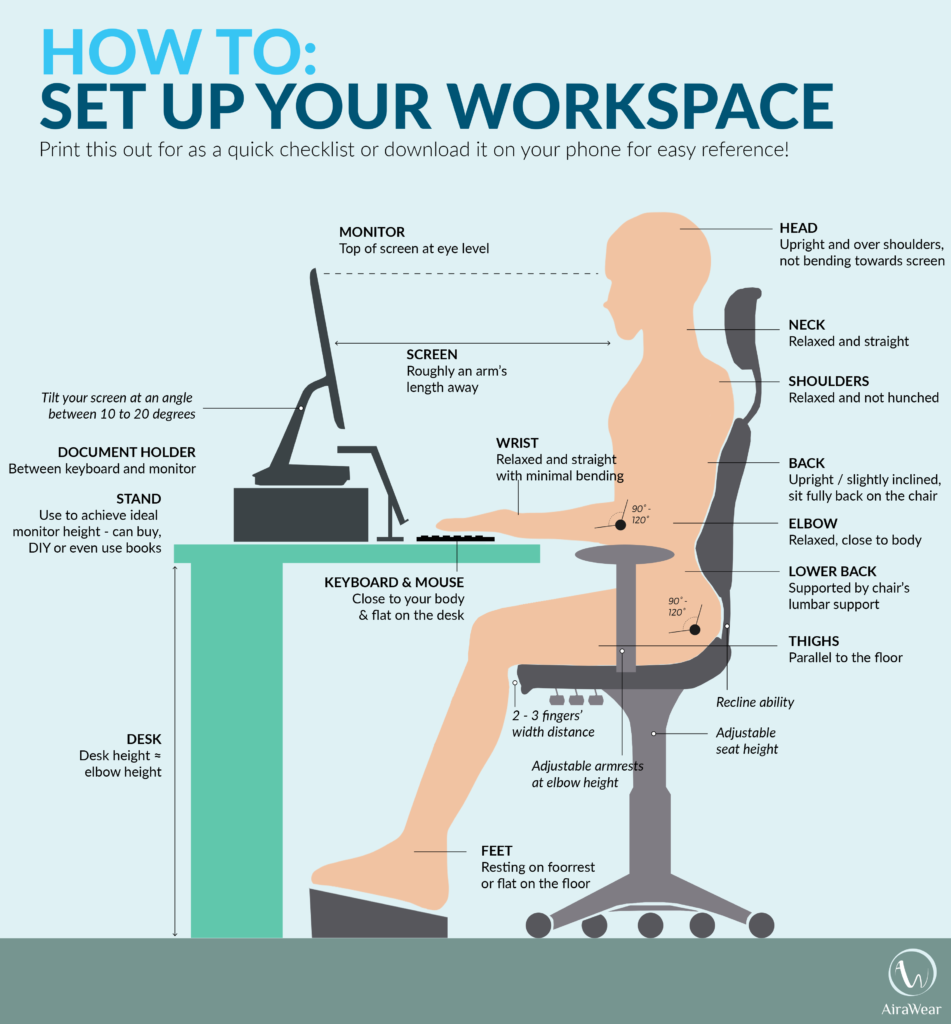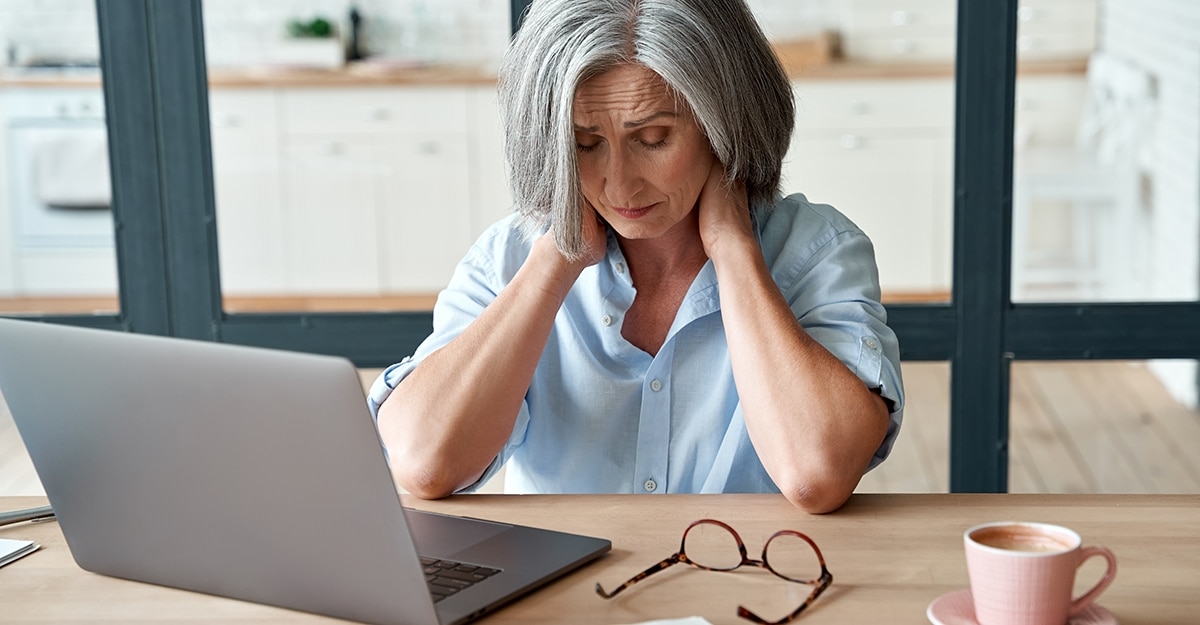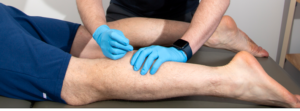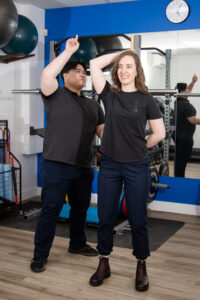Working from home is becoming more and more common as the world adapts to life post-pandemic. Working remotely has become normal for many office workers, and I myself am actually writing this blog post from my home office.
One thing we have noticed in our physiotherapy clinic is that over the last few years, we have been seeing increased numbers of patients call our clinic with numerous aches and pains, often in their low back and/or neck, and reporting that it began (or was made worse) by them working from home. As it appears that working from home isn’t stopping anytime soon, I’ve written this blog to help remote workers avoid aches and pains and maximize their work output while they are away from the office.
Optimize Your Work Station
It’s fair to say that most people didn’t work from home before the pandemic started. However, now more and more of us do, we’ve figuring out that laying sprawled on the couch with a laptop perched precariously on our knees and our necks cranked forwards for 7.5 hours probably isn’t the best way to stay productive and pain free. Now is certainly time to invest in some simple ergonomic home office equipment, and to make sure you have a dedicated desk, chair and computer set up to work from. A tabletop standing desk is also an excellent investment. Your employer may cover these purchases for you, but even if they don’t, remember that you are investing in yourself and it’s equipment you will have for years to come.

Keep Moving
The old saying says ‘motion is lotion’, and this is true. Make sure you aren’t spending all day sat down, and get up and move when you can. As a rule of thumb, we advise to try and stand more then you sit throughout the day, and a great way to do this is to purchase a tabletop standing desk. These are readily available from online retailers, and by standing more then you sit, you will help lessen the strain that prolonged sitting exerts on your body (please note, if you predominantly sit throughout the day, it is important to gradually increase the amount of time you spend standing, as if you suddenly spend all your time standing when your body hasn’t adapted to it, you may find some aches and pains popping up elsewhere!)
Watch Your Mental Health
1 in 3 Canadians will suffer from mental health issues in their lifetime, and prolonged working from home could compound any mental health issues you may be dealing with, so make time throughout your workday to call or facetime with a friend or loved one, or go for a walk during your lunch break to get outside and de-stress. Meditation is a great way to help you stay calm and reduce stress and anxiety. Remember, if a person is struggling with issues such as stress, anxiety or depression, the part of their brain which perceives pain is overactive, which can make aches and pains worse. If you can manage any mental health issues well, you will most likely feel better physically.
Nip It In The Bud
If you are experiencing a new onset of aches and pains, it certainly pays off to get it checked out sooner then later. The longer you leave any niggling aches and pains, the worse they can become and the underlying factors that are causing them (such as tightening of muscles or stiffening of joints from prolonged sitting) can become worse and taken longer to resolve. Generally speaking, when patients come to work with our physiotherapists sooner then later, they don’t need as much treatment because the underlying problem isn’t as severe. Our team of physiotherapists are expertly placed to help you figure out solutions to your home workstation headaches, and can provide hands on therapy, like IMS and exercise, to help relive your aches and pains.

We hope you have found this blog entry helpful. Please feel free to contact our clinic at 250-493-1152 to book an appointment with one of our physiotherapists, or book online to begin your road to recovery. Looking for more information? Click here to download our FREE eBooks, providing you with a plethora of advice about steps you can start right now to prevent low back, neck and knee pain!
About the Author

Chris graduated from the Manchester Metropolitan University (in England) in 2007, and after a couple of years working in hospitals in Leicester, moved to Canada in 2010, where he spent the first 4.5 years working at the BC Childrens Hospital. Moving to Penticton in 2014, he founded the Penticton Physiotherapy & IMS Clinic the same year, and has overseen its growth and development since then. He is passionate about providing top class physiotherapy care for the Penticton and South Okanagan community, and is dedicated to getting people in Penticton back to what they love to do.





